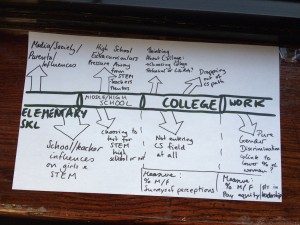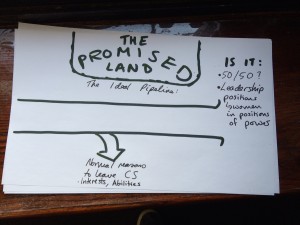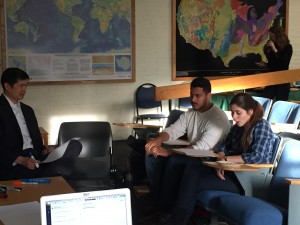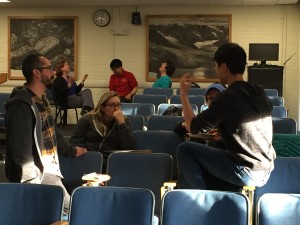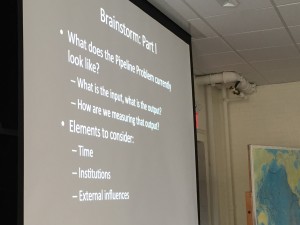The Question
Why are so few women entering CS fields – and how do we fix this problem?
Our Solution(s)
We first heard from three speakers: Michelle Danoff (WiCS co-president), Katharine D’Hondt (Master of Public Policy Candidate at HKS), Margo Seltzer (Herschel Smith Professor of Computer Science at SEAS). Their topics ranged from personal experiences as women in CS to statistical analysis of the CS pipeline at Harvard.
Following these talks, we broke into small groups to try to better analyze the current state of the pipeline. What does it look like? What is the output? What is the input? What are we trying to measure, and how are we measuring that? Both broken and ideal pipelines were created.
What’s Up Next
This workshop was a great opportunity to look at a long-standing problem through a slightly different lens, with the help of data and analytics. It is a jumping off point for more discussion and for pinpointing the exact problem quantitatively.

